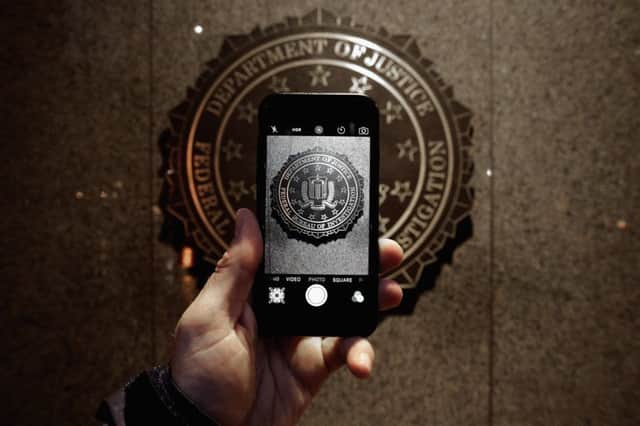FBI ducks court fight with Apple after it hacks killer's iPhone


Prosecutors had asked a federal judge to cancel a judgment preventing the Federal Bureau of Investigation breaking into the iPhone, saying it was no longer necessary.
The FBI used the unspecified technique to access data on an iPhone used by gunman Syed Farook, who died with his wife in a gun battle with police after they gunned down 14 people in San Bernardino in December.
Advertisement
Hide AdAdvertisement
Hide AdAgents are now reviewing the information on the phone, the US justice department said.
The government’s brief court filing provided no details about how the FBI got into the phone. Nor did it identify the non-government “outside party” who showed agents how to get past the phone’s security defences.
Authorities had previously said only Apple had the ability to help them unlock the phone. Apple responded by saying it will continue to increase the security of its products.
“We will continue to help law enforcement with their investigations, as we have done all along,” the company added in a statement, while reiterating its argument that the government’s demand for Apple’s help was wrong.
“This case should never have been brought,” Apple said.
FBI assistant director David Bowdich said examining the iPhone was part of an effort to learn if the San Bernardino killers had worked with others or had targeted any other victims.
“I am satisfied that we have access to more answers than we did before,” he said.
The dispute ignited a fierce internet-era debate that pitted digital privacy rights against US national security concerns and reinvigorated discussion over the impact of encryption on law enforcement’s ability to serve the public.
This latest surprise development punctured the temporary perception that Apple’s security might have been good enough to keep consumers’ personal information safe even from the US government.
Advertisement
Hide AdAdvertisement
Hide AdAnd while President Barack Obama’s administration created a policy for disclosing such security vulnerabilities to companies, the policy allows for a vulnerability to be kept secret if there is a law enforcement or national security reason for doing so.
The withdrawal of the court process also takes away Apple’s ability to legally request details on the method the FBI used in this case. Apple attorneys said last week that they hoped the US government would share that information with them if it proved successful.
The US justice department would not comment on any future disclosure of the method to Apple or the public.
Apple chief executive Tim Cook had argued that helping the FBI hack the iPhone would set a dangerous precedent, making all iPhone users vulnerable.
The matter was headed for a courtroom showdown last week, until federal prosecutors asked for a postponement so they could test a potential solution brought to them by a party outside of the US government last Sunday